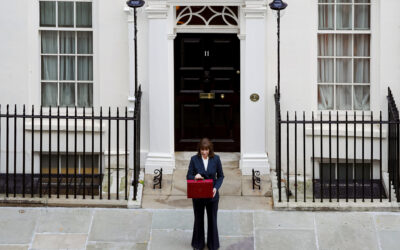A government pledge to name and shame aggressive tax avoiders has failed to list a single company, new research by TaxWatch has revealed.
In 2016, as part of the Government’s crackdown on tax dodging Parliament put in place a set of measures designed to improve the behaviour of large corporations.
The new rules would allow HMRC to put companies onto the naughty step if they had been found to be persistently non-compliant. This was defined as persistently failing to disclose information requested by HMRC, or being a serial abuser of tax avoidance schemes.
Being placed into “special measures” could potentially have serious consequences. Companies could be named and shamed, or have a strict liability for any inaccuracies in their tax returns.
Despite saying that the measure was only targeted at a small number of bad apples, officials at HMRC clearly had high hopes that the measure would have an impact. When the government first consulted on introducing the measure in 2015 it penciled in an additional £40m a year in tax being raised. Another initiative that was introduced at the same time, the requirement to publish tax strategies, was predicted to raise an additional £65m.
By the time that it was announced in the 2016 budget, estimates of its effectiveness had ballooned to over half a billion pounds a year, with both measures scheduled to bring in an additional £625m in tax in the 2020/2021 tax year.
TaxWatch asked HMRC how many companies had been put into special measures since the introduction of the large corporate naughty step in 2016. The answer? Zero.
In a response to a Freedom of Information request, HMRC told TaxWatch that the threat of special measures had been so terrifying that the small number of companies considered for action immediately mended their ways, thus leading to no action being required. They told us:
The High Risk Corporates Programme, a key part of HMRC’s code of governance for resolving tax disputes, aims to simultaneously resolve tax risks and change customer behaviour. As part of this programme, special measures sanctions have been considered in a small number of cases where our large businesses demonstrate persistently uncooperative behaviours and engage in aggressive arrangements. Subsequent improvements in customers’ behaviour have removed the need to impose sanctions on these particular cases.
It is worth remembering that sanctions would only be put in place if companies had already been persistently non-compliant. The public might expect that giving large companies one final warning before taking action may be an act of leniency not usually available to other groups of people that have to deal with HMRC.
This research was featured in Private Eye, Law360 and Accountancy Daily.



